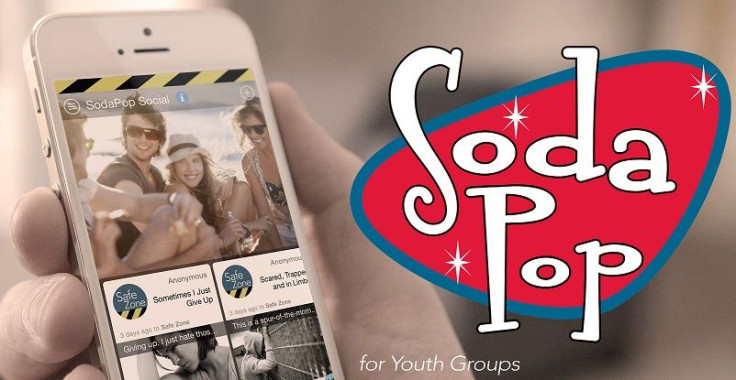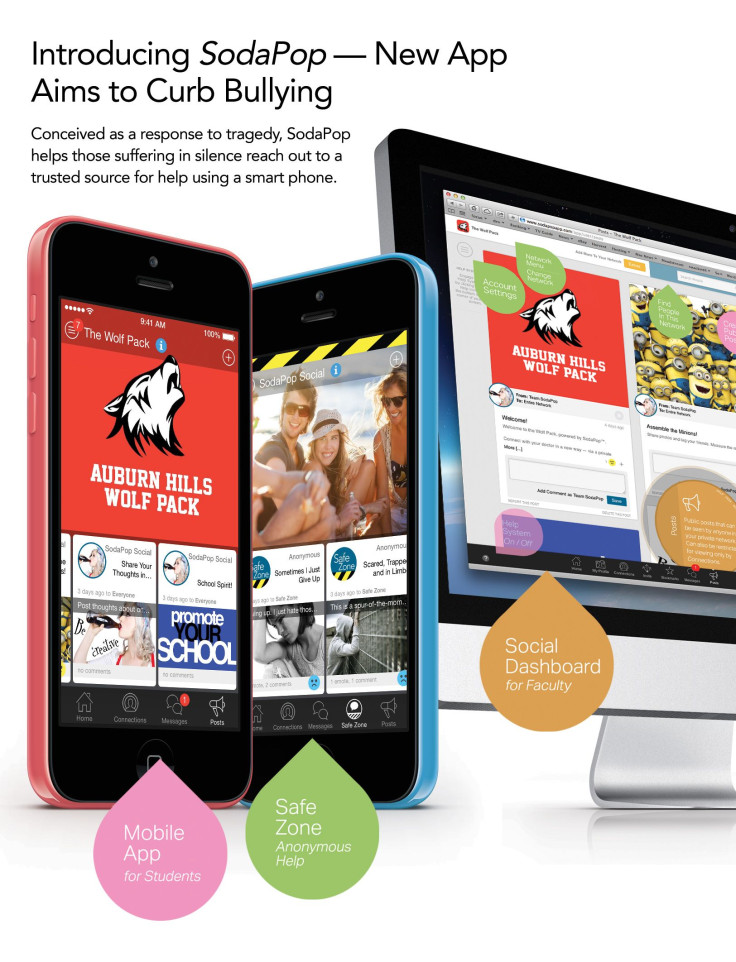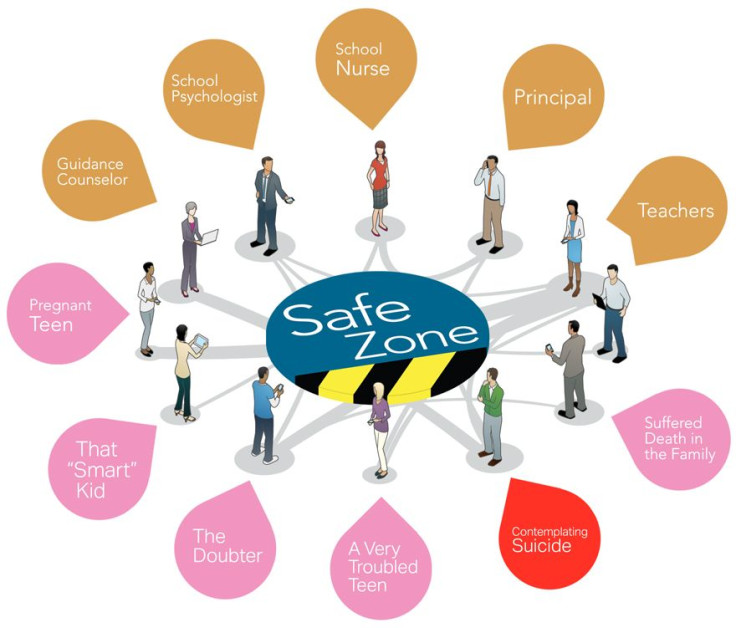Anti-Bullying App 'SodaPop' Keeps Teens Safe With Unique Trust Key Feature

Bullying can isolate, degrade, and destroy healthy social growth in teenagers. Bullying has been a present problem in the educational system for generations, but cyber bullying has presented its own unique concerns for parents and teachers. In some cases, teens are bullied to death, and the anonymity of the Internet allows the abusers to amplify relentless threat. The demand for a safe and secure social media app has been omnipresent throughout every middle school and high school in America, and SodaPop’s launch last month is promised to deliver.
It all started when a teen tragically committed suicide in Murrysville, Pa. Having showed no signs leading up to his death, the local church reached out to AGLogic to create a platform for students to seek help and ultimately prevent further deaths. AGLogic is an app-developing company that got a lot of attention after creating the Swackett weather app for forecast. The success from millions of downloads they trafficked is exactly why church administrators sought them out.
“We get a lot of ideas sent to us for apps. But when the ministry approached us with the idea for an anti-bullying app we all stopped and said, ‘We have to do this,’” AGLogic Founder Scott Gilbert, who has been the lead developer of the SodaPop app, told Medical Daily. “Whenever you build an app like this, it’s always a risk. We invested a lot of time and money into it but when we hear people tell us we’re on the right track, it encourages us to work harder for the cause.”

When an organization, such as a church youth group or school, creates a network they’re given a 9- to 12-digit “trust key” code. The code is shared to students or church members to log in to their private network, where students can invite five of their friends. Users can begin exchanging photos, comments, and statuses, and vent or reach out for help all while abuse is monitored by advisors. The unique part comes in when users open up the “safe zone” feature to anonymously comment their emotions and stories, where they are met by an anonymous advisor with help.
Originally, the app was named “Do Talk” and just featured the safe zone, but Gilbert and his team didn’t want the app to become stigmatized and red flagged as the app for kids who were bullied. Instead, the team created an entire social media platform around the safe zone to give teens the option to reach out if they need help.

They went public in September, and just last week, SodaPop was named one of “31 Most Current and Useful Resources for School Bullying Prevention” by the Crisis Prevention Institute. Currently, the team is actively contacting every middle school and high school in the nation, including guidance counselor chairs, school psychologists, and social workers, to teach them about the app.
Over 3.2 million students are victims of bullying every year, according to DoSomething.org. SodaPop has the opportunity to reach these students by reassuring them privacy, whether they want to share their feelings or a picture of their dog inside an exclusively safe nook of the Internet.
Other apps have attempted to provide a similar service but have failed. Just a year after YikYak was released in 2013, bullies began logging in and taking advantage of the anonymity feature by teasing and tormenting those who sought help. The creators of SodaPop foresaw the hurdles and the possible cracks bullies could slip into and worked to eliminate any chance of it backfiring.
“We have teenagers suffering in silence,” Gilbert said. “What’s the best way to reach them? Their mobile phones are always in their hands. It’s their lifeline. When you’re in the safe zone, you’re completely anonymous and it’s staffed by people you trust. The users know they’re going to get an answer they can trust. In the case of abuse or emergency, we have the ability to reveal who it is, but that’s only been a case-by-case situation.”
Published by Medicaldaily.com



























